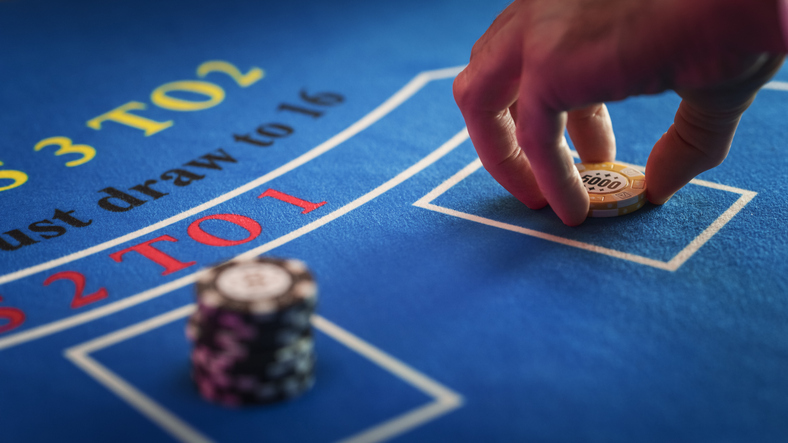- 3 Sep 2025

Online baccarat is one of the most popular digital casino games, loved for its fast pace and simple rules. But as with any game of chance, players often wonder: is it really fair? When you’re not sitting at a live table and watching a real dealer, how can you be sure that the outcome of your hand isn’t being manipulated? This concern brings us to the heart of digital gaming fairness — RNG, or Random Number Generator. RNG is the core technology used in all virtual card games to simulate randomness. In this article, we’ll explore how online baccarat uses RNG, whether the technology can be trusted, and how to ensure a fair playing experience.
RNG, or Random Number Generator, is an algorithm or hardware-based system that produces a sequence of numbers or outcomes that cannot be reasonably predicted. In online baccarat, RNG is used to “deal” cards in the absence of a human dealer.
For example, in a traditional baccarat game, the dealer manually shuffles and deals from a physical shoe. In contrast, the RNG in an online version simulates this process, determining card distribution in a way that mimics the randomness of a live shuffle.
This randomness is critical — it’s what ensures that the digital version of baccarat is just as fair and unpredictable as its real-world counterpart.
Online casinos use a specific type of RNG called a Pseudo-Random Number Generator (PRNG). This PRNG uses a seed value (often based on time or system processes) to generate a seemingly random output that dictates game outcomes.
Here’s how the process typically works in online baccarat:
The PRNG generates a sequence of numbers in milliseconds.
These numbers correspond to specific cards in the virtual deck.
The cards are “dealt” based on these generated numbers.
The system immediately determines the outcome and displays it to the player.
While the system is automated, the process is governed by complex algorithms designed to imitate real-world randomness. However, the key to trust lies not just in how RNG works — but in how it’s monitored.
To ensure fair play, reputable online casinos must obtain licenses from recognized regulatory authorities such as:
Malta Gaming Authority (MGA)
UK Gambling Commission (UKGC)
Gibraltar Regulatory Authority
Kahnawake Gaming Commission
These licenses are not given lightly. Regulators impose strict standards on game fairness, require casinos to use certified RNG software, and mandate regular audits by third-party agencies.
Licensed casinos are obligated to:
Use independently tested RNG software
Display payout rates (RTPs)
Maintain transparency in game mechanics
Protect player data and funds
Therefore, playing at a licensed casino significantly reduces the risk of encountering rigged games.
Another crucial element in guaranteeing the fairness of online baccarat is third-party testing. Independent auditors like eCOGRA, iTech Labs, and GLI (Gaming Laboratories International) specialize in testing casino software for fairness and security.
These companies evaluate:
RNG integrity and randomness
Return to Player (RTP) percentages
Game functionality and consistency
Compliance with industry standards
For example, eCOGRA (eCommerce Online Gaming Regulation and Assurance) is one of the most trusted names in casino auditing. They provide certification seals that indicate a site has passed fairness testing.
When a casino displays these seals, it’s a sign that its games — including baccarat — meet high standards of fairness.
Yes — but only if you’re playing at licensed and regulated casinos.
Unlicensed or offshore sites may not undergo regular audits or adhere to RNG standards. They could potentially manipulate game outcomes, especially if there’s no oversight from a gaming authority.
However, trusted online casinos with licensing and third-party audit verification offer games that are fair, transparent, and safe for players. These platforms cannot afford to rig games, as doing so would result in the loss of their license and legal penalties.
Additionally, online baccarat games have similar payout rates to their land-based counterparts, typically around 98.94% for banker bets. This close alignment further supports the idea that most online baccarat games are fair when properly regulated.
Here are a few practical tips to make sure you’re playing online baccarat safely and fairly:
Check the casino’s license: It should be visible in the footer or “About Us” page.
Look for audit seals: Certifications from eCOGRA or iTech Labs are positive indicators.
Read player reviews: Reputation matters — avoid platforms with negative feedback.
Avoid offshore or unregulated sites: Stick with recognized brands.
Test with low stakes first: Evaluate fairness before playing with high amounts.
Use live dealer baccarat if skeptical: Live streams add an extra layer of transparency.
Online baccarat relies heavily on RNG to deliver a game experience that mirrors the randomness of live play. While RNG systems are complex, they’re also tested, regulated, and audited to ensure fairness — at least when you’re playing at a legitimate, licensed casino.
If you’re ever in doubt about a casino’s fairness, always look for regulatory seals, audit certificates, and trusted licensing. Ultimately, when all the checks are in place, you can enjoy online baccarat with peace of mind — knowing that the odds are just as random as they should be.